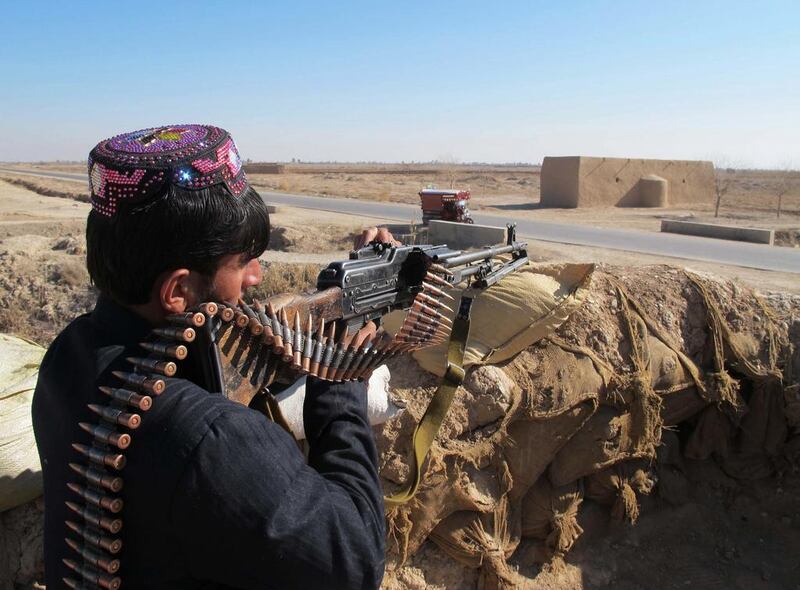The end game of a decade of foreign intervention in Afghanistan’s Helmand province is now being played out. Up until 2014 British and US forces fought and died in an unsuccessful attempt to eradicate the Taliban from the province, a major source of opium.
It now looks inevitable that the Taliban will seize the strategic town of Sangin, as part of a campaign to wrest control of the whole province from the security forces of the tottering Afghan government.
If that happens it will be a severe setback for Afghanistan’s president, Ashraf Ghani, and the long-term western plan to establish a stable government in Kabul after the toppling of the Taliban regime in late 2001.
The town of Sangin is well known to the British military as the focus of the army’s efforts to secure Helmand. A small and under-resourced force set out to control the province, but it had little understanding of local politics and an excess of confidence – stemming from its experience in Northern Ireland – in its ability to carry out counter-insurgency tasks.
Crispin Blunt, a former army officer who is now chairman of the British Parliament’s foreign affairs committee, this week described the British intervention in Afghanistan as an unqualified disaster. “We are witnessing the tragic conclusion of a wretched misadventure in Helmand province.”
At the same time, a very different story is emerging from Iraq, where the army and allied militias seem on the point of liberating the city of Ramadi from the ISIL jihadists who seized it in May.
The fall of Ramadi, capital of Anbar province, was a low point for the Iraqi security forces, proving that even after the catastrophic loss of the city of Mosul the year before, the army was still corrupt and pitifully incompetent.
With only a few hundred ISIL fighters left in the city, success seems only a matter of time. Even if the Iraqi army is still punching below its weight, it is good enough to fight its way into a small city when given close air support by the Americans. It may be possible for the Iraqi state to resurrect itself after it was smashed by the 2003 Anglo-American invasion.
That conclusion may be premature, but there are lessons to be drawn from the military campaigns in Iraq and Afghanistan.
It is clear that the US and British campaign in Helmand province was flawed from the start. The western forces did not know their enemy: they assumed anyone with a gun or who opposed them was “Taliban”. In fact the Taliban insurgency is just one element overlaid on a complex of political and commercial rivalries.
As the foreign soldiers did not speak Pashto, they were fighting blind. Some veterans of that conflict now reject the term Taliban, and prefer to talk of “people we called Taliban”. The armed men the western troops were fighting often enjoyed more local support than the Afghan government, whose police were seen as a foreign, predatory force.
That highlights the second weakness: the political programme followed by the western forces – that the Afghan government would be accepted with open arms – owed more to romantic American notions of governance than to the realities of Afghanistan. These contradictions remain unresolved to this day.
As for Iraq, many of the overwhelmingly Sunni residents of Anbar province view the Baghdad government as no less alien and predatory. Support for ISIL was prompted by disaffection with a government which had fallen under the sway of Iran and Shia parties which looked on the Sunnis as a suspect minority.
But there is a big difference between approaches to the two insurgencies. In Iraq some lessons have been learnt. The Iraqi army and its American trainers know their enemy: ISIL is a known quantity.
In military terms it is no longer, as Mao said, a guerrilla force moving among the people as fish swim in the sea. It is an army holding and defending territory. Inevitably, Ramadi must succumb to the superior forces of the Iraqi army, especially as it controls the air.
The second lesson is that the army is disguising the Shia-dominated nature of the state. The troops are wrapping themselves in Iraq flags, rather than the Shia symbols of the sectarian militias which led the attack on Tikrit in February and were then accused of looting and revenge attacks.
To what extent the Iraqi army today is an army for all Iraqis and not rebadged Shia militias is an open question. The government has promised that the liberated city will be policed by local forces.
Such promises may be broken. The Iraqi prime minister, Haider Al Abadi, is not in a strong position. But the important fact is that there is a political project that makes sense at this time. The Americans have also upped their game: having been accused in the past of failing to support the Iraqi army, there are no such complaints now. The arrival of Russian forces in Syria seems to have aroused Uncle Sam to up his game in Iraq.
The battle for the resurrection of Iraq is only just beginning. The Iraqi army is not yet strong enough to retake Mosul. The Sunnis of Iraq will be watching what happens in Ramadi to see if Mr Al Abadi’s promises are kept. They will be looking for some flesh to be put on the bones of the idea “functioning federalism”, which would establish locally rooted security services around the country.
No such way forward is apparent for Afghanistan. The government is weak and the Taliban are divided after the death of their leader, Mullah Omar. What is needed is peace talks to bring all the Afghan tribes and political forces together to exclude ISIL, which is establishing itself in Afghanistan.
The ISIL threat is growing but it has not come close to bringing the Afghan forces together to drive it out.
Alan Philps is a commentator on global affairs
On Twitter @aphilps





